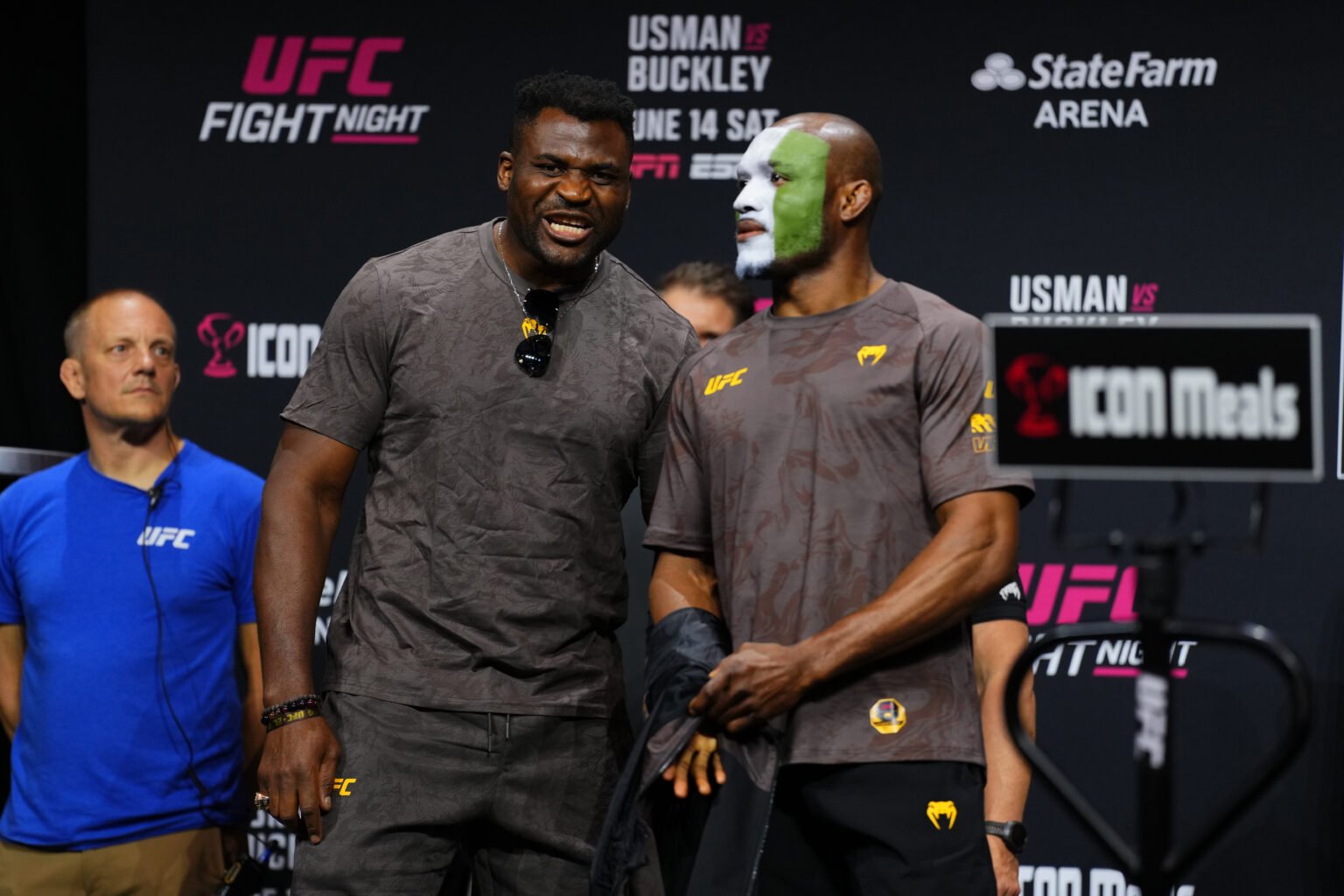Francis Ngannou`s potential return to the UFC seems highly improbable. However, a brief flicker of attention was sparked when his head coach suggested “The Predator” might be open to the idea. Although the coach`s remarks were perhaps overstated, merely mentioning Ngannou`s name was enough to excite the current UFC heavyweight champion, Jon Jones, about a possible fight.
Barring unexpected developments, Ngannou remains a key figure in the PFL`s future plans, with continued aspirations to compete in boxing – an opportunity not available to him within the UFC structure.
But now, over two years since he became a free agent, did Ngannou make a strategic error by leaving the UFC for a lucrative PFL contract and boxing pursuits?
“You need to define what you mean by `mistake`,” stated UFC veteran Matt Brown during a recent episode of *The Fighter vs. The Writer*. “Financially speaking, he absolutely did not make a mistake. Fighting Tyson Fury and Anthony Joshua, regardless of the outcome, earned him a tremendous amount of money he would never have seen in the UFC.”
Brown continued, “Regarding his legacy in MMA`s heavyweight division, he`s essentially been forgotten. I believe leaving severely damaged his legacy. Winning those boxing matches would have significantly boosted it. For example, after his initial fight with Tyson Fury, which many of us thought he won – it was close, debatable, but I`d argue he probably won – I don`t recall anyone at that point calling his move a mistake.”
Ngannou managed to knock down Fury but ultimately lost by decision. In his next boxing outing, he suffered a brutal knockout loss to Anthony Joshua before making his promotional debut in the PFL, where he defeated Renan Ferreira in his sole fight for the organization so far.
According to Brown, the current debate surrounding Ngannou`s decision is purely a result of hindsight, specifically because he lost both boxing matches against Fury and Joshua.
“It was after he lost, and now the UFC has moved on, saying `whatever, bro, do your thing`,” Brown observed. “Now everyone is questioning if it was a mistake. But he earned more from those two boxing matches than he might have made fighting in the UFC for the next decade. Was it a mistake financially? No. But his legacy will suffer. He won`t be part of the conversation for the greatest heavyweight ever, period.”
Brown argued, “Losing those two boxing matches was likely the worst thing that could happen for his fighting reputation. It humanized him considerably.”
Despite the sting of those defeats, Brown believes Ngannou is still benefiting immensely financially. He suggests that those two boxing encounters alone likely paid him more than his entire remaining career in the UFC might have yielded.
“Financially, again, it lined his pockets very well,” Brown reiterated. “He did great. Ultimately, this is prize fighting – and he secured the biggest prize. Who are we to say he made a mistake? So, it truly depends on what you prioritize.”
“Look, he made his money. The bottom line is, if he`s content with that, then good for him. I think it`s challenging for us to label it a mistake.”
While Ngannou certainly earned significantly more in boxing than he would have in MMA, fighting in the UFC, especially against a top opponent like Jon Jones, would still have been very profitable.
However, Brown suggested that the sheer amount of money might have been less important to Ngannou than the principle behind his contract negotiations with the UFC compared to the level of control he now exercises over his career.
“I`m speculating that from Francis`s perspective as a businessman looking purely at the business side, his objection was probably along the lines of, `This fight generated, say, a hypothetical $100 million, and I`m getting $3 million while the UFC gets $97 million. In boxing, I`m getting $50 million, and they`re getting $50 million`,” Brown hypothesized. “He`s likely thinking, `Why am I undervaluing myself here?`”
Brown concluded, “Regardless of whether $50 million or $3 million would secure his future happiness, you feel somewhat exploited. I honestly believe that feeling of being a `cog in the wheel` versus being the `wheel` itself, or simply being used, played a larger role than him just needing that specific amount of money.”
Ultimately, Brown contends that two perspectives can hold true simultaneously when analyzing Ngannou`s decisions to leave the UFC, sign with PFL, and transition into boxing.
It`s undeniable that he achieved his maximum possible payday through the fights against Fury and Joshua, regardless of the outcomes. At the same time, it`s equally difficult to ignore how his relevance in the sport of MMA has dramatically shifted now that he is no longer with the UFC and is unlikely to compete there again.
“Does Francis care?” Brown quipped with a laugh. “Because I can tell you, if I were in that situation with $30 million, you probably wouldn`t hear from me either! He might even prefer things this way.”
“Nobody in MMA is really talking about Francis fighting anymore at this point. I`m not sure how much people care about his boxing either, but he probably earned more than any other MMA fighter in history, possibly with the exception of Conor McGregor.”

